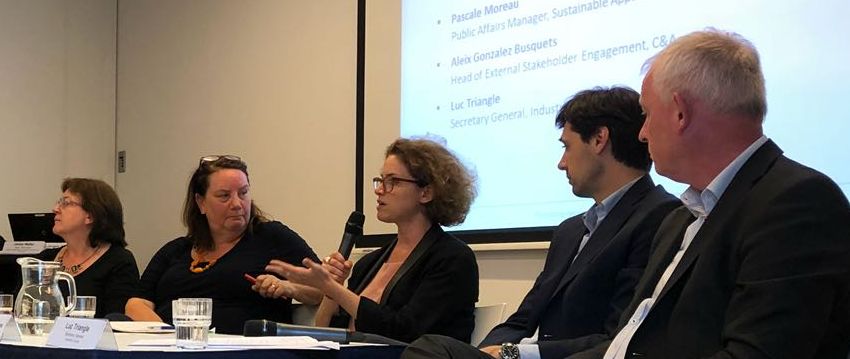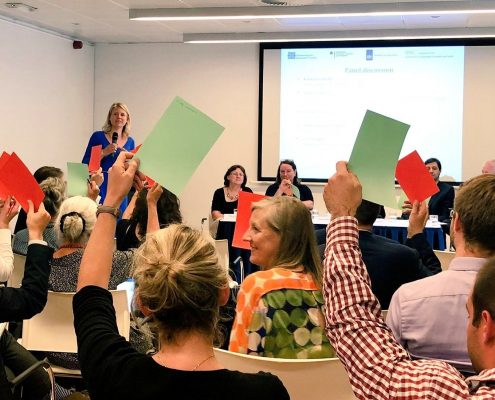High-level Panel on Due Diligence in the EU Textile and Garment Sector
News
27.06.2018
High-level Panel on Due Diligence in the EU Textile and Garment Sector

The panellists included Katarzyna Kuske (Policy Officer at DG GROW, Unit Tourism, Emerging and Creative Industries, EU Commission), Agnes Jongerius (Vice-Chair of the Committee on Employ-ment and Social Affairs of the European Parliament), Pascale Moreau (Public Affairs Manager, Sustainable Apparel Coalition), Aleix Gonzalez Busquets (Head of External Stakeholder Engage-ment, C&A) and Luc Triangle (Secretary General, IndustriALL Europe).



